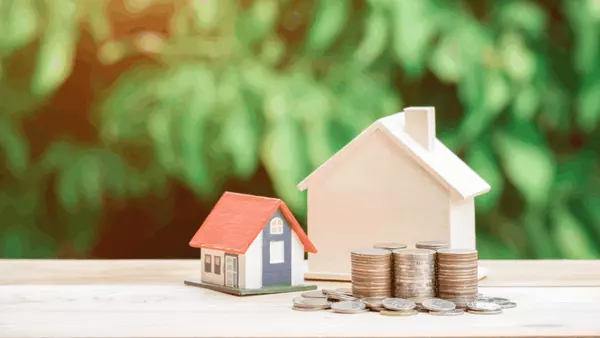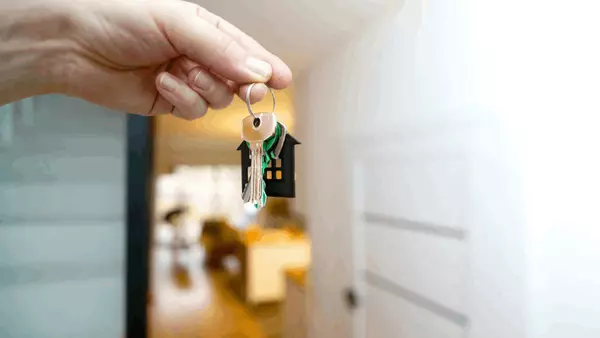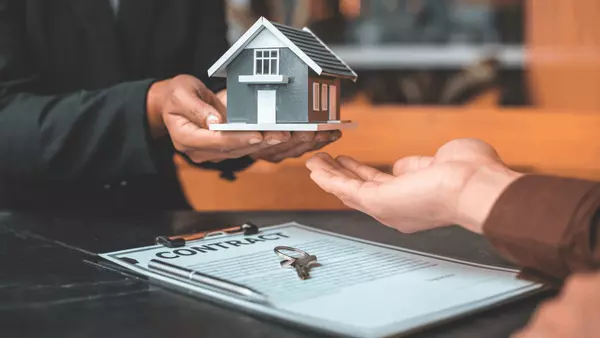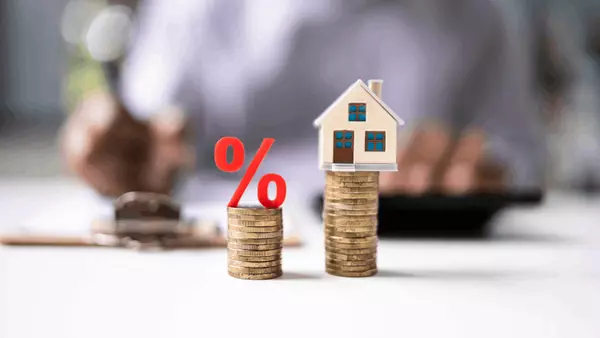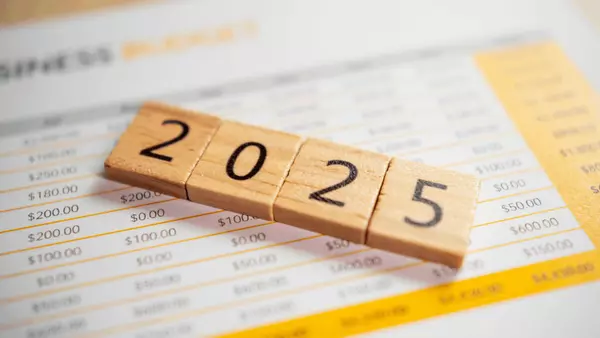Today's Tale of Two Housing Markets
Why It Feels Like Two Different Worlds Right Now
If you’re feeling confused by the real estate headlines lately, you’re not alone. One day, it’s a “seller’s market,” the next, buyers are regaining negotiating power. So what’s happening? The truth is, we’re living in two housing markets at once — an
The 3 Things You Risk by Pricing Too High
When it comes to selling a home, pricing is everything. It’s tempting to aim high—after all, who doesn’t want top dollar for their property? But setting your price too high can backfire, costing you time, money, and opportunity. Whether you're a homeowner listing FSBO (for sale by owner) or working
Why More Sellers Are Choosing To Move, Even with Today’s Rates
Here's a blog draft titled "Why More Sellers Are Choosing To Move, Even with Today’s Rates" – no source links included, just clear and compelling content:
You’ve probably heard it before: “I’d love to move, but I don’t want to give up my low mortgage rate.” And that makes sense—rates were historic
Home Projects That Add the Most Value
Whether you're preparing to sell your home or simply want to make smart upgrades, not all home improvement projects offer the same return on investment. The key is to focus on renovations that not only improve your day-to-day living but also increase your home’s resale value. Here’s a look at the t
Why Some Homes Sell Faster Than Others
You’ve seen it happen—one home sits on the market for months, while a similar property down the street is under contract in a week. So what’s the difference? Is it just luck? Price? Timing?
Not quite.
In reality, there are several key reasons why some homes sell faster than others. Whether yo
Why Most Sellers Hire Real Estate Agents Today
In a world where DIY tools and instant information are everywhere, some homeowners wonder: “Do I really need a real estate agent to sell my home?” The answer—especially today—is a resounding yes.
Here’s why most sellers still choose to hire a professional real estate agent in today’s market:
The Secret to Selling Your House in Today’s Market
The Secret to Selling Your House in Today’s Market
If you’ve been thinking about selling your home, you’ve probably noticed that today’s real estate market isn’t quite like it used to be. Higher interest rates, shifting buyer expectations, and low inventory have created a landscape that can feel bot
How to Navigate Changing Mortgage Rates
Mortgage rates can feel like a moving target, fluctuating frequently and sometimes unpredictably. These shifts can have a significant impact on your home-buying or refinancing journey. However, staying informed and proactive can help you manage these changes with ease. Here are some strategies to n
4 Strategies to Make Your Offer Stand Out This Spring
Spring is one of the busiest seasons in real estate, and competition can be fierce. With multiple buyers often eyeing the same property, it’s crucial to make your offer as attractive as possible. If you're hoping to secure your dream home this spring, here are four effective strategies to help your
The Importance of Not Skipping Your Home Inspection
When purchasing a home, there are many decisions to be made, and one of the most crucial steps is the home inspection. While it might seem tempting to skip this step, especially if you’re eager to close the deal or if the property appears in good condition, it’s always a wise choice to invest in a
Top Pricing Tip Every Seller Should Know
When it comes to selling a home, one decision carries more weight than almost any other: your asking price. Set it right, and you can attract multiple offers, sell quickly, and maximize your return. Set it wrong, and you risk sitting on the market for weeks—or even months—while buyers lose interest
Here’s How to Prep Your Home for a Spring Sale
Spring is one of the best times to sell your home. The days are longer, flowers are blooming, and buyers are ready to hit the market. But if you want to make the most of this hot selling season, a little prep work goes a long way. Here’s how to get your home market-ready—inside and out.
1. Start wi
The Most In-Demand Home Features in 2025
Homebuyers in 2025 are looking for more than just four walls and a roof—they want smart, stylish, and sustainable spaces that truly fit their lifestyle. Whether you're buying, selling, or just dreaming about your next home, knowing what’s trending can help you stay ahead of the curve.
So, what’s on
Spring Market Trends in Boston: What Buyers & Sellers Need to Know
Spring is one of the busiest seasons for real estate in Boston, and 2024 is shaping up to be no exception. Whether you’re buying or selling, understanding the latest trends can help you navigate the market with confidence. Here’s what you need to know:
For Buyers: A Competitive Market with New Oppo
How to Stage Your Home for a Cozy Winter Showing
When selling your home in the winter, creating a warm and inviting atmosphere can make all the difference. With the colder temperatures and shorter days, buyers are looking for a home that feels comfortable, cozy, and welcoming. Here are some essential staging tips to help make your home irresistibl
Home Improvements with the Best ROI Before Selling in Boston
If you're planning to sell your home in Boston this spring, making strategic home improvements can help you maximize your return on investment (ROI). Buyers in Boston are looking for modern, well-maintained homes, and certain upgrades can significantly increase your home's value and appeal.
Her
Why Winter is a Great Time to Buy in Boston
Many people believe that winter is a slow season for real estate, but in reality, it can be a fantastic time to buy or sell a home in Boston. With motivated buyers, reduced competition, and potential deals, winter offers unique advantages for those looking to make a move. Here’s why you should consi
Real Estate Market Opportunities
The real estate market is a dynamic landscape that offers a myriad of opportunities for both buyers and sellers. Whether you're looking to purchase your first home, sell an existing property, or simply stay informed about current market trends, understanding the nuances of the market can help you ma
What’s Happening in Real Estate? Trends Unveiled
The real estate market is always evolving, and staying informed about the latest trends can make a significant difference, whether you’re buying, selling, or investing. Here’s a look at what’s happening in today’s market and what these trends mean for you.
Interest Rates: Still a Hot Topic
Interest
Don’t Overpay! How to Win in a Competitive Market
In today’s real estate market, competition is fierce. Homes are selling fast, and buyers are feeling the pressure to make quick decisions. But how do you secure your dream home without overpaying? It’s all about strategy. Here’s how you can win in a competitive market without stretching your budget

Melanie Gundersheim
Phone:+1(617) 997-8272

